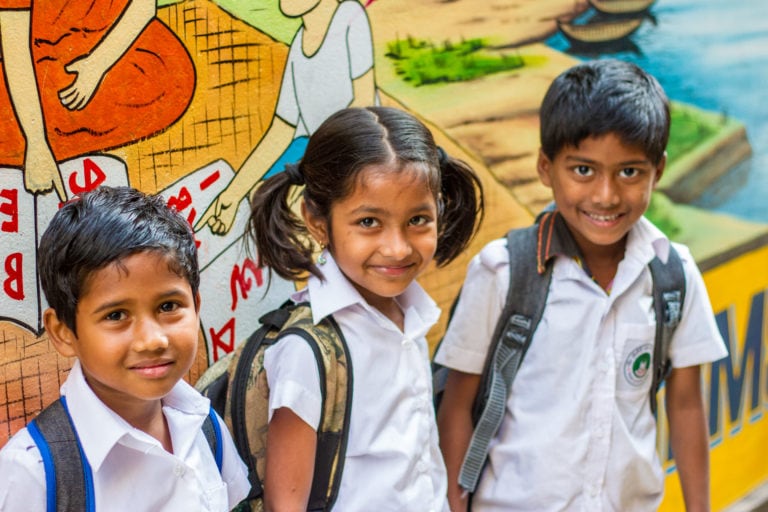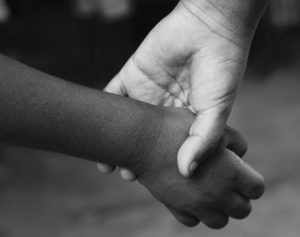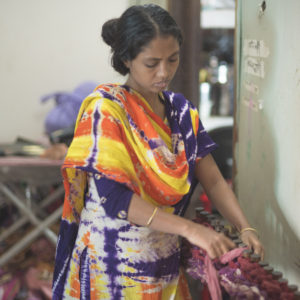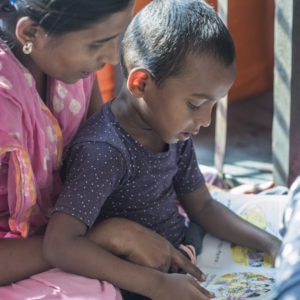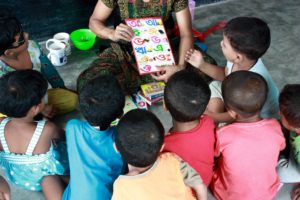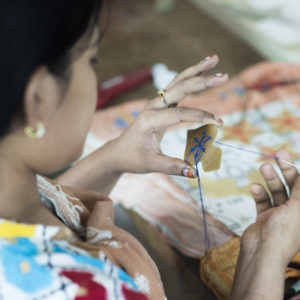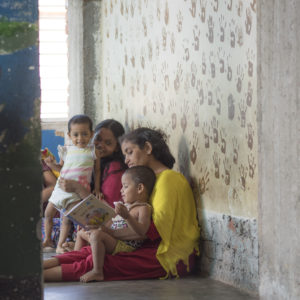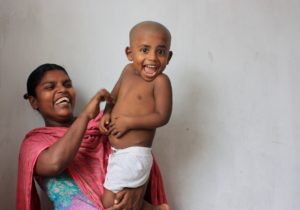Social businesses that work within the artisan sector, often establish a separate nonprofit to support the socio-economic needs of the producers whom they employ. We recently caught up with founder, Robin Seyfert to learn more about Friends of Basha, and how it supports many of the women who work at Basha Enterprises.
Basha Enterprises is a limited company based in Bangladesh with a mission to employ women at risk and survivors of trafficking and to ensure that they have every opportunity to thrive. Basha is registered as a Limited Company because the only other option for an entity owned by a non Bangladeshi was a Non-Governmental Organization. We had seen the value of registering as a business as it inherently creates a drive to creativity and energy because otherwise it will fail. At the same time, this put us in a sector that is very profit driven whereas the whole point of our existence is to employ women others would deem unemployable. There are many challenges, but we set high standards, encourage our employees to do their best, and give grace when it is needed. Every day Basha’s administrative team is finding a balance of demanding quality, demanding productivity, and still being sensitive to people suffering from the after effects of trauma, cognitive difficulties, and mental health issues.
Friends of Basha has existed since 2013 to offset some of the costs that we consider either separate from the business or that would be an undue burden to the business. Some examples are high protein snacks for children in our daycare, our training programme in Tangail, and supports for people who have difficulty working and/or parenting.
Basha partners with NGO’s whenever possible as our main emphasis is to provide employment. Our partner in Dhaka is Children’s Uplift Programme. They run a drop in centre and training programme for homeless mothers and children in an area of Dhaka rife with crime and trafficking. We employ the majority of their graduates. Because they work with mothers and children, they send us more children than employees which was overwhelming to us. Now they help fund and support our daycare. They also fund a facility we run where teen girls who were previously fending for themselves on the streets live in a supportive, safe environment. In Mymensingh town we partner with Mennonite Central Committee’s Pobitra training programme which provides a year of subsidized training and rehabilitation to women at risk and women coming out of street based prostitution. Sacred Mark is another enterprise where Pobitra graduates can work. In Jessore we are partnering with Salvation Army and working through Winrock International to connect with additional partners.
Many services and supports are factored into our Basha wholesale prices. Every Basha product pays for the artisan wage, bonuses, paid leave, medical care, daycare, and ongoing education for the artisan. Friends of Basha provides additional funds to go a step beyond- to have resources to do whatever is needed to help women escape human trafficking in Bangladesh. We love the impact employment has to empower women to rebuild their lives and to ensure that they and their children will not be vulnerable to traffickers in the future. Friends of Basha allows us to raise additional funds and to provide services to fill any gaps in order to best fulfill our vision for a day when all women in Bangladesh will have the opportunity to do work that they are proud of.
Here are some of the stories behind of the women we support.
“Her body is tiny because she didn’t have enough food as a child. Her face is prematurely wrinkled and worn from the trauma she has endured. Her two daughters, eight and ten years old, passed her in their ability to read and learn long ago. Her sewing is so slow you can barely see her needle move. She doesn’t respond that well to critique and often doesn’t make good decisions. Her second daughter is joining her sister at boarding school in January. Friends of Basha will make sure her fees are paid even though her mother could never be considered a strong contributor to Basha’s bottom line.”
“Khani* was just a young girl when she got lost looking for her aunt’s home. Someone said they would help her find it but instead they sold her to a brothel in a town called Tangail. Khani spent years in the brothel but eventually married a customer who helped her leave. She later found out he was married and had another family. In 2014, this brothel had been destroyed and there was a request for help for the women who were left vulnerable and with few options. Basha didn’t have any partners in this area as we’ve had for our other production centres, but we couldn’t resist the women’s pleas for help. Khani had never learned how to read or write and now she can sign her name thanks to Basha’s training programme. Khani received a stipend throughout her training so she could focus on learning. Khani started working for Basha when she completed her training so that she could provide for her family, educate her daughter, and not have to depend on her husband. Friends of Basha funds all these activities.”
“Weighing 7 kg (15 pounds), we knew Nylah* was a tiny child. When we discovered she was approaching 3 years old, it was clear she was severely malnourished. She was admitted to a local hospital for round the clock nutrition intervention. Since then, Nylah’s development has been monitored, her mother has received counselling and support, and Nylah has received high protein snacks to ensure she can be healthy and catch up developmentally. Nylah is over 4 years old now and is actively participating in daily classes that teach her the alphabet, nursery rhymes, and how to write her name in preparation for school. Friends of Basha has paid for the food for Nylah and the other children who weren’t getting the protein they needed to be healthy.”
For more information about Friends of Basha visit: https://www.friendsofbasha.org/pages/friends-of-basha

